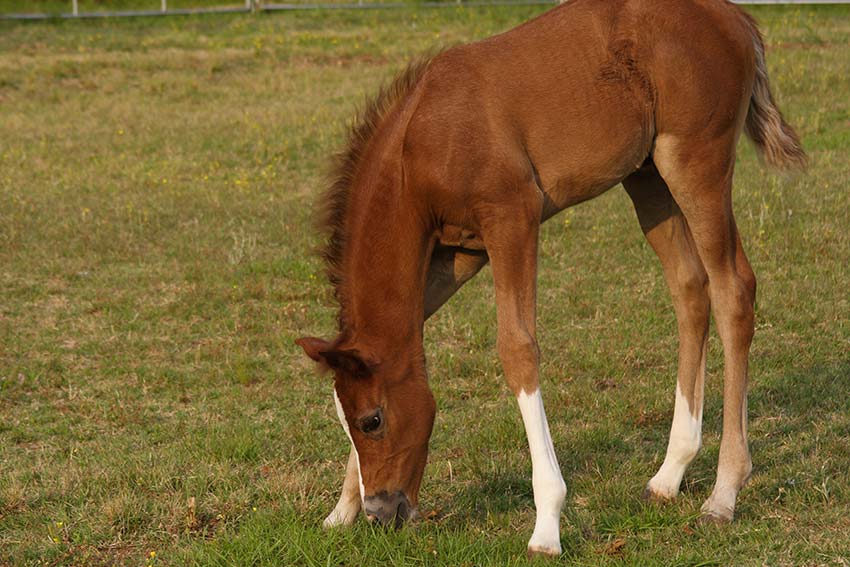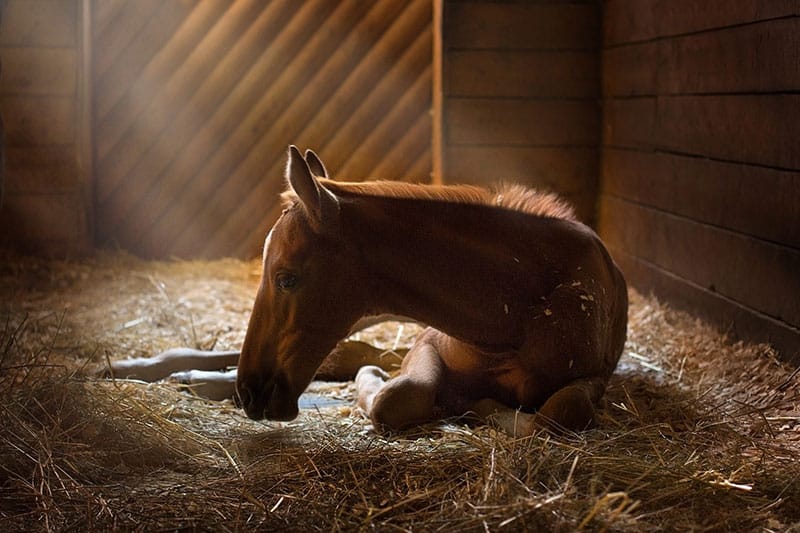
EHV-1 in 2022
Here’s a look at what we know and what we’re learning about equine herpesvirus type 1 (EHV-1) in light of recent outbreaks.
Horse breeding from planning through foal care

Here’s a look at what we know and what we’re learning about equine herpesvirus type 1 (EHV-1) in light of recent outbreaks.

Veterinarians consider a rare disease in a mare battling respiratory infection, pneumonia, and fever.

Researcher: Differing and possibly delayed immune responses could explain the variation and offer potential for redirecting viral effects.

Learn about the delicate balance between two key minerals in horses’ diets.

Poor hypothalamic-pituitary-adrenal axis development in premature and immature newborn foals might affect their stress responses.

Breeding farm managers want zero foal deaths, but at what greater cost?

These procedures can allow mares deemed infertile because of inadequate perineal conformation to conceive and carry foals again.

Regular, strategic vaccination is a safe, effective method to greatly minimize the chances of deadly diseases impacting your herd. Learn more in this article from the April 2022 issue of The Horse.

Remember these three core biosecurity steps to help keep your horses as well as your fellow competitors’ horses healthy.

The researcher replaces Dr. Peter Timoney, recently retired professor and Lennep Chair in Equine Veterinary Science at the University of Kentucky’s Gluck Center.

A rapid return to pre-pregnancy uterine size might improve mare fertility during foal heat.
Employ nontraditional methods to discover more about pregnancies, pathology, and problematic anatomy, all using a transrectal probe.

If you suspect your horse’s hair whorls have something to do with his personality, you might be right.

Practitioners have a new tool for assessing fetal growth/age in late gestation.

EHV-2 and EHV-5 behave unlike EHV-1 and -4 and respond differently to antivirals, leaving researchers eager to better understand their importance.

The readily available modality can reveal more information so veterinarians can make a definitive diagnosis.
Stay on top of the most recent Horse Health news with
"*" indicates required fields